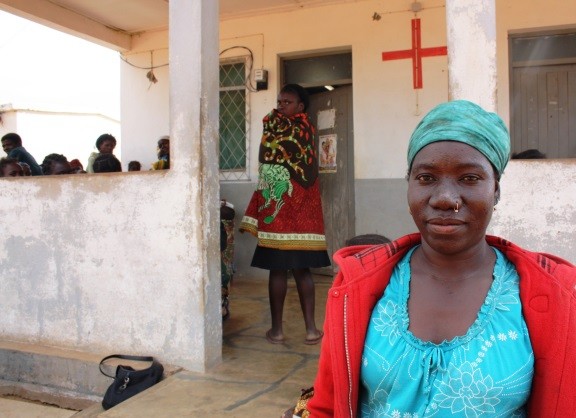
Oct. 2014—Access to lifesaving anti-retroviral treatment (ART) for HIV continues to be a major obstacle in Mozambique, where many rural clinics do not offer this service. Patients must travel long distances to health centers offering ART, incurring transportation costs to receive medicine and attend check-up visits. This leads to poor adherence to ART, withdrawal from treatment, and preventable deaths.
In 2011, USAID funded new ART sites for adults and children in Sofala, Manica and Tete provinces. To date, 77 new ART sites in the three provinces are now open, bringing the total number of existing sites to 163. These sites provide lifesaving treatment to more than 140,000 HIV-positive adults and children. USAID’s support includes funding to improve the clinics’ infrastructure and training of staff on the delivery of treatment.
Mazoe Health Center, located about 60 kilometers from Tete City, is one of the new ART sites. Previously, patients had to commute to Changara District Center, 40 kilometers away, or to Tete City. Belinha Paizone, 45, married and the mother of five children is one of the patients who experienced this harsh reality.
“I initiated ART in 2007 and faced transport constraints while going to collect medicine or going for check-up visits,” says Paizone, whose husband is also HIV-positive and currently receiving ART at the same health center. “I often had to borrow money or sell agricultural produce to afford the bus fare to the nearest health facility. Most people here in the community had no money and, therefore, withdrew from treatment. Many passed away due to lack of financial conditions to continue treatment. Now that we have an ART health center here, life became easier as we no longer need to spend money in transport to take medication or to go for [check-up] visits. I advise patients to adhere to ART, and we no longer record deaths due to lack of treatment.”
Since February 2014, the Mazoe Health Center, with USAID support, has been providing ART services to over 170 patients in a community of 17,000 inhabitants.
In Mozambique, USAID is working with the Ministry of Health, with funding from the U.S. President's Emergency Plan for AIDS Relief, to improve HIV clinical services within a strengthened primary health care system.
LINKS
Follow @USAIDMozambique, on Facebook, on Flickr, on YouTube







Comment
Make a general inquiry or suggest an improvement.